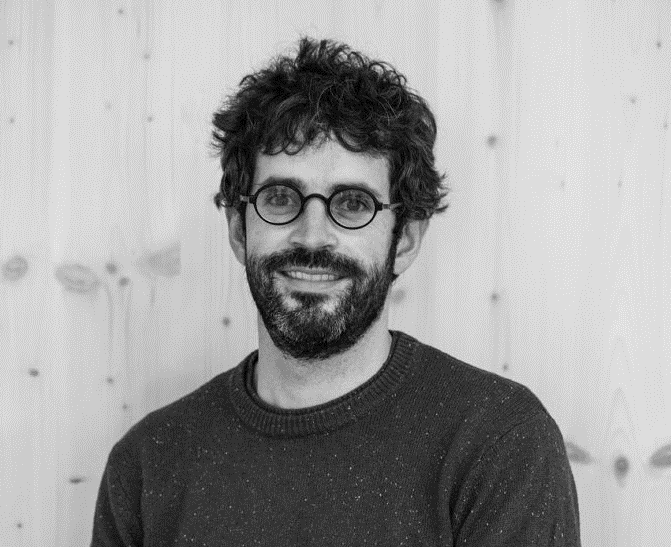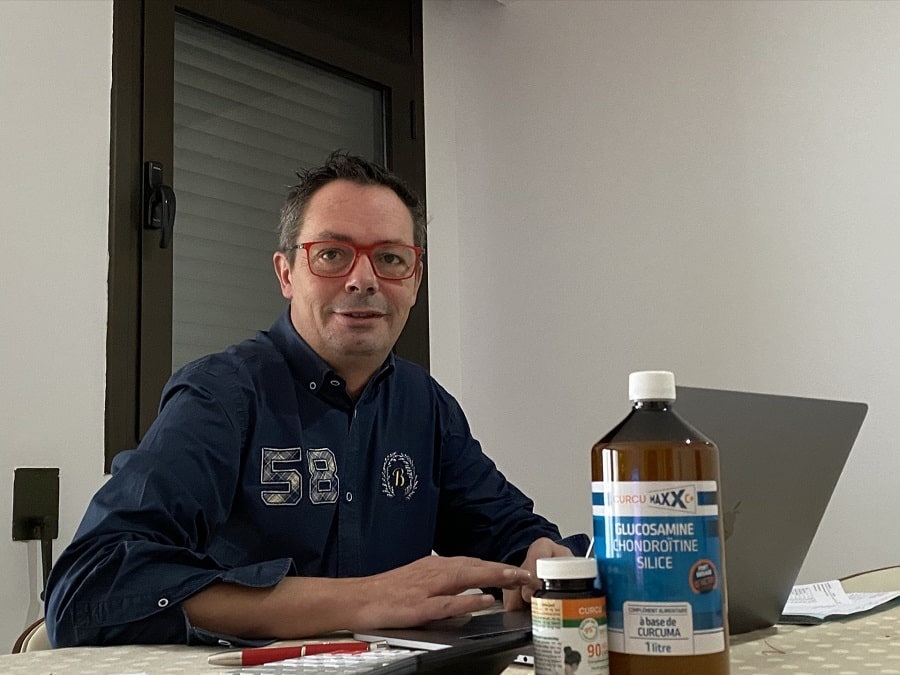Girona is a city and municipality in northeast Catalonia, the capital of the “comarca” Gironès and the province of Girona. In 2018, 100,266 people lived in the Girona municipality. The city has its own airport, which is about 100 km from the airport El Prat (Barcelona). If Girona had a high-speed train (TAV) stop, its airport would become the “fourth runway” of Barcelona’s airport. The mayor of Girona, Marta Madrenas, told us about this project, as well as about the city’s cultural plans, her respect for the native Catalan language and the prospects for the independence of Catalonia from her point of view.
Interview: Ximena Bravo
In 2016, in your election speech, you stated that you were trying to “awake Girona and put your city at the high level it deserves.” Could you please explain what this means? And what do you need to achieve this goal?
Girona fell into a certain state, which in Catalan can be called “anar fent” (this phrase means that you are trying to do something), and this state has not allowed us for a long time to take advantage of the huge potential that we had. After the economic crisis, we began to change the model. And, despite a very turbulent period, today we are, in a sense, the second city of Catalonia: we are recognized for our heritage, our history and our activities that we have been doing over the past few years.
We have improved areas such as separate waste collection, as well as the commercial structure of the city. These are the key points of the city council with its entire local economic issues.
Each city council has a development program. In the case of the city council of Girona, where do you invest the main resources? And why?
We invest in many areas, not particularly different from other cities. During the years of the economic crisis, we significantly increased investments in improving the quality of social services so that all residents of our city could use them. We also invest heavily in cultural policy programs, which we see as an obvious investment in the future. Recently, we have increased expenditures in types of services like the cleanliness of the city, the safety of residents and guests of Girona, community services and sustainable development.
As the mayor of Girona, which project would you like to implement first of all?
I think that one of the main challenges we face today is managing mobility as a part of our climate change adaptation policy. The cities must be strongly committed to sustainable mobility. I want to introduce Girona as a European model of a medium-sized city that demonstrates how you can replace the use of a car with other types of transport, such as a bicycle. So we can improve not only our lives but also the lives of our neighbours.
We want our city to develop due to the professional projects of our residents, to remain attractive and humane, with a size that corresponds to its social relations and progress. Girona has always been a city of big opportunities and a high quality of life. We are proud of Girona, and we connect its future with the future of our country generally.
Are there many tourists in your city? Does Girona have a strategic tourist attraction plan?
According to the information available in our travel agency, our main tourists are residents of other municipalities of Catalonia, as well as the rest of Spain. They form about 50% of the total volume of tourists. France is in third place (almost on par with Spain), followed by Britain and the Netherlands. It should also be noted the increase in the number of American citizens who mainly ride bicycles here. There are also tourists from Russia and some Asian countries.
We have developed the first strategic plan for attracting tourists to Girona, which we are currently implementing. Over the past decade, we have been able to show Girona on a world map, turning it into a city that is interesting for types of quality tourism such as cultural, sports and family tourism. We have a unique cultural heritage and our visitors appreciate it. Our task is to support this high-quality tourism. We want to see in our city tourists who respect Girona and its environs. The plan provides for the development of specific actions, mainly aimed at the coexistence of tourism in Girona and neighboring cities.
What important cultural events took place in Girona in 2019? Has a cultural program been defined for 2020?
We are an excellent city for organizing big events. In recent years, we have become a part of the Ciutat de Festivals brand (City of Festivals), which brings together cities across all of Europe. We have the High Season (Temporada Alta), which in 2018 became the 13th cultural event in Spain.
As for musical events, we host concerts for all kinds of audiences – from modern lovers to classical music fans. We have the Elephant d’Or Circus Festival, one of the top three in Europe. And, of course, the Temps de Flors flower festival, the most beautiful event in the city, when Girona shines with its own special light and gathers people from all over Europe.
I would also like to ask you about the real estate market – what is the percentage of people living in Girona who have their own housing?
This fall, we conducted an analysis of the housing market, which should become the basis for the city council in coordinating actions with social and economic agents – we should agree on the development of actions aimed at eliminating the current housing shortage. In Girona, we lost about 30% of rental housing, which is very close to European standards. Although in recent years it should be noted an increase in property prices, as in the whole country.
We need to expand the possibilities of granting housing subsidies, which is mainly necessary for young families who purchase their first home.
On September 30th this year, the 750,000,000th passenger arrived at the Girona-Costa Brava airport. Are you going to develop the airport? We heard that in the near future the airport of Girona and Barcelona may complement each other. What would that mean?
For the economy of Girona, it is very important that the airport runs smoothly and can serve regular flights. We conducted a study that showed that our airport can serve an area with a population of more than 5 million people if we manage to build a stop for the high-speed train (TAV) (this is a very important question for Catalonia which wants to be independent. The Spanish government blocks this stop which will allow the airport El Prat to actually have the “fourth runway” and increase the number of tourists directly to Catalonia, bypassing other airports in Spain). (Today, El Prat International airport has three runways from 2540 meters to 3352 meters long, two asphalt and one concrete).
We hope that this work will be completed since this is a guarantee of the complementarity of the two airports and it is simply necessary for Barcelona airport, which has already reached its limits.
Ryanair, the low-cost airline, does not exclude the possibility of stopping flights to Girona airport. What are your views on this?
One of the problems of the airport is that, since the flight management is centralized and carried out from Aena, we have no opportunity to pursue our own commercial policies and adapt tariffs depending on the needs of the territory.
Indeed, Ryanair has already relocated most of its base from Girona to El Prat.
Once again, from here we have very little influence because the main decisions are made from Madrid. But, fortunately, we are a very attractive area, and we hope that Ryanair will maintain its presence in Girona for a long time.
In addition, the number of travelers and various airlines is growing and this is good news.
Girona is a Catalan city where everyone speaks Catalan. Do you somehow contribute to the development of the Catalan language? Andorra, for example, is a country where the official language is Catalan, but where Spanish is most often spoken. And this is despite the free of charge courses for everyone. What advice would you give Andorra so that its residents are more interested in the Catalan language?
In Girona, the Catalan language is our mother language, the vast majority of residents speak Catalan. Catalan is a vital tool for integration and social cohesion. I think that the best advice is to continue to develop the Catalan language as our native one, to see in it a positive light that enriches us all. This is our language, and if we do not use it, no one will protect it.
In 2017, the Spanish public prosecutor launched a campaign against the mayors who signed a decree supporting the referendum on October 1st, after which you were summoned to the court of Girona (l’Audiència de Girona). Only in 2018, the case was dismissed. How has this whole process affected you?
It was a difficult time. There were many of us – mayors of Catalan cities – who suffered from prosecution. Obviously, dismissal is a relief because no one wants to be tried for crimes that they have not committed. I have a calm conscience. To support the independence of Catalonia is not a crime. And this is not normal when the authorities, chosen by citizens and expressing the will of citizens, suffer from judicial decisions and political persecution.
We know that you are for the independence of Catalonia. How real it is? What do you think about it?
I have always been for independence. My country is Catalonia. And I am convinced that, being independent, Catalonia will be able to improve the quality of life of our citizens. In the end, we want us to have the highest quality services, the most developed cities and the state to have the welfare that we deserve, and which we received through our efforts. Without independence, getting all these benefits will be much more difficult.
Of course, we should start with a dialogue with the Spanish state, but, seeing that it is almost impossible to reach an agreement, we must bring the issue of resolving the conflict to the level of the Council of Europe. Let Europe become our arbiter, give us the opportunity to vote and find out if we want to become an independent country.











